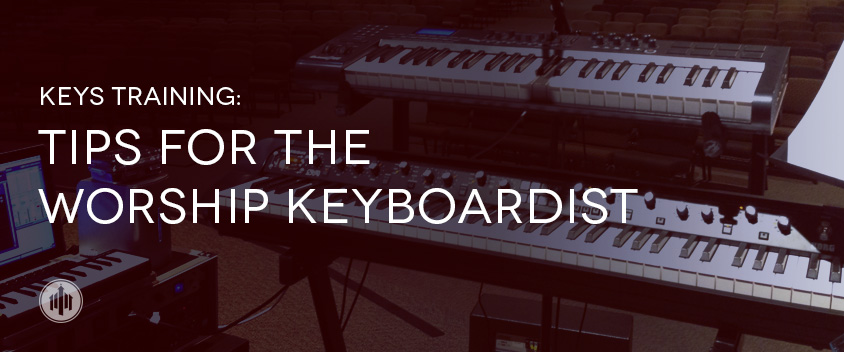
Assessment is the Key to the Keys
One situation will never be the same in the context of a musical worship band. Look at your instrumentation as well as the resources you have available. Not everyone has an electric guitarist with tons of delay pedals, also, not everyone has a Nord Stage 2 and a Clone Wheel for the B3 parts. Ask yourself, “What can I do to make what I have work to make this happen”. When you have done that, assess the music. There is nothing wrong with playing exactly what comes up on an album recording of a song, but I urge you to be creative with your playing. Replace a string line with a piano lead, attempt to use only one patch for a whole song, etc. Lastly, be mindful what happens before and after a song is done. There is nothing more awkward when a powerful musical worship time has developed, the song ends, and all the instruments stop playing. Our role as keyboardists is to also be the glue of the band, and to artfully, musically, and tastefully blend from one set to another, without being distracting.
Just because you have ten fingers, doesn’t mean you need to use them all
We have all heard the term “less is more”. In a keyboardist’s world, that rings true as well. Many of us most likely come from a classical background, like myself. I used to think, “OH THIS DEFINITELY NEEDS MORE LEFT HAND”. I soon began to realize, that the approach I had was not working to benefit the mix, even if it sounded good in my ears. If there is a bass guitarist, who understands that their role is to be the “bass”, than you have the pleasure to relax. I challenge you to do a whole set, just using your right hand, and maybe even only use four of your five fingers. You will need to think about what, how, and when you play. It will better you as a musician in the context of the musical worship band that you are playing with.
Preparation
I believe this can be said for any member of the band. If we take the time to prepare ourselves spiritually, as well as technologically, the services will run much smoother. It doesn’t matter if your running a full MIDI-Softsynth rig, or have vintage keyboards and romplers around you. Program your sounds in a manner that they are accessible easily. Write down your program numbers for each song. Know what parameters are active as well as what controls those parameters. And lastly, have backups just incase a patch does not work, or you worship leaders drastically changes something. As a last resort, a piano sound can always work.

